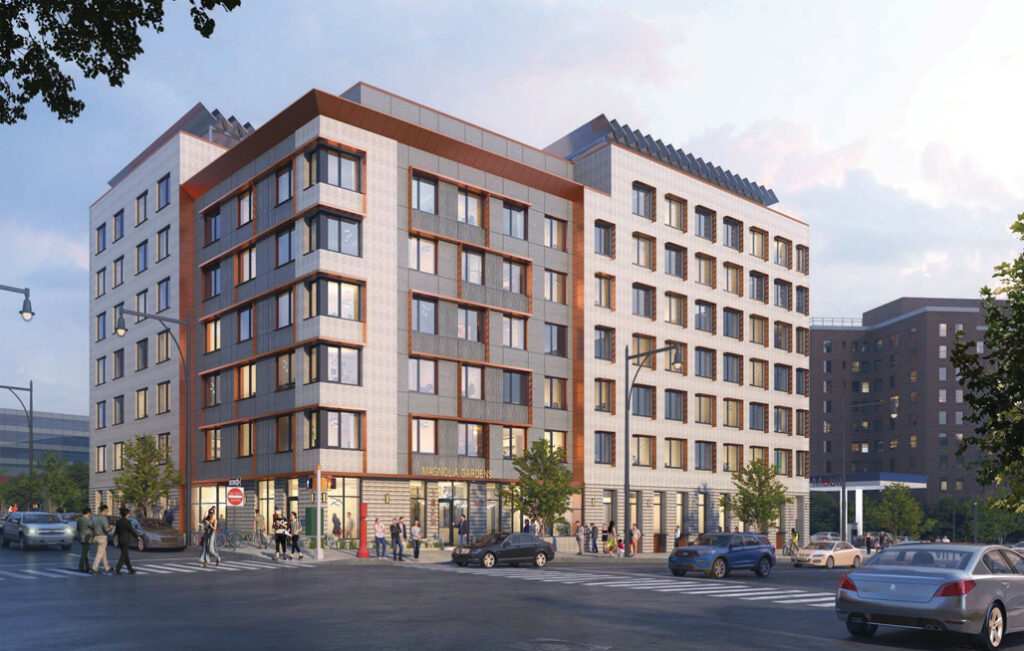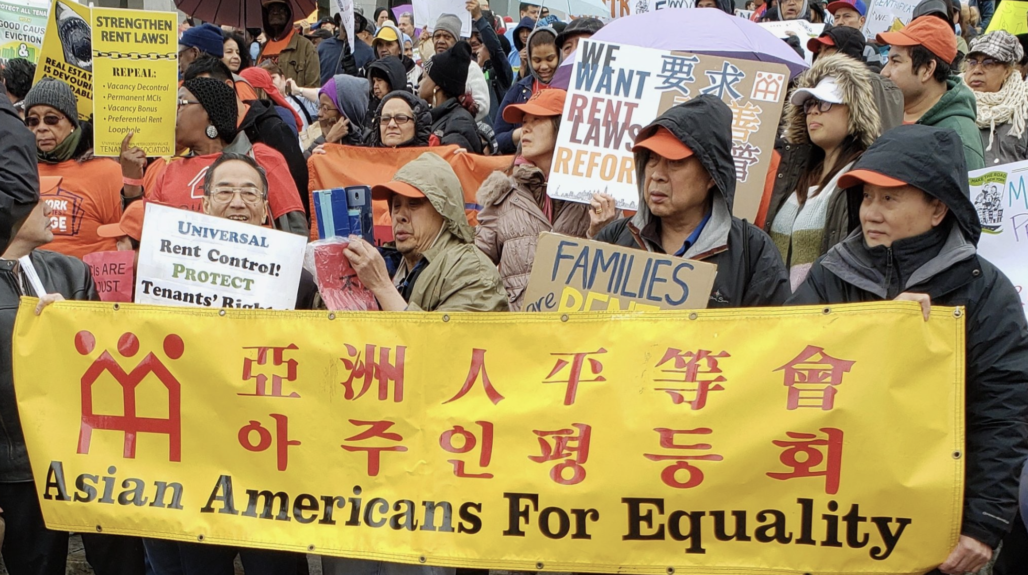Part 4 of a 4 part series on Magnolia Gardens, our transitional housing facility coming to Flushing, Queens.
The brutal murder of Christina Yuna Lee in her Chinatown apartment this past February was an unspeakable tragedy for her family and close friends. It was also traumatizing for many other people in the community, including a 90-year-old woman, her son and 11-year-old granddaughter who lived in the same building. They abruptly moved out of their apartment of 20 years, temporarily staying in a nearby hotel and were concerned they would never be able to find another affordable home in the area. Working with city officials and government agancies, Asian Americans for Equality (AAFE), was able to help facilitate the family’s move to AAFE-operated housing in Chinatown, which was only possible through the transfer of their rental subsidy. We also enrolled them in the SNAP food benefits program and helped connect the family with the financial and emotional support they needed to carry on with their lives. Recently the son, caring for both his elderly mother and young daughter, told us, “I was really surprised there was assistance available to help us gain access to an affordable apartment. Now I hope that my daughter can thrive and excel in ways that I couldn’t, and that my family stays safe and healthy.”
For almost 50 years, AAFE has been there when the community needs us the most. Whether it’s providing affordable housing, helping small businesses survive ($6 million in loans and grants during the pandemic alone) or making sure immigrant New Yorkers receive essential social services (7,000 cases handled per year), we remain committed to the well-being of our most vulnerable families from Chinatown to Flushing and beyond. A reality for many of these families is that traditional affordable housing is out of reach for them. It’s a big reason why they need transitional housing, where they can benefit not only from a safe and secure apartment, but also comprehensive services available to residents to help them get back on their feet. In these pages the past few weeks, we have been presenting the facts about Magnolia Gardens, just such a transitional housing facility, which AAFE is developing in Flushing with our partner Urban Resource Institute (URI), a leading provider of shelter and services for families in need throughout New York City.

Magnolia Gardens will help address New York City’s housing crisis, but also, more specifically, provide a lifeline for families with children in Flushing and neighboring communities. AAFE’s decision to undertake this project was prompted by our deep concern that Asian American families were being underserved in the city’s shelter system, even though the need is great (almost one in four adult Asians in New York City lives in poverty). This is why in addition to co-developing Magnolia Gardens, we also worked with URI to innovate a complementary Housing Services & Retention Collaborative, which will facilitate access to culturally competent services in support of families with children historically underserved, including AAPI families with children.
The Collaborative is designed to provide an opportunity for Flushing-based AAPI-serving providers and other community partners to come together to refer families in need of transitional housing, help facilitate applications through the Department of Homeless Services’ Prevention Assistance and Temporary Housing (PATH) intake center and offer immigrant services, such as immigration counseling and English classes, to complement the already robust program offerings URI will have in place at Magnolia Gardens. Two new AAFE staff members will help support this work, conducting multilingual community outreach and education, coordinating the work of the Collaborative and assisting families in navigating the city’s intake and application process for transitional housing. We will even provide transportation for families to the PATH intake center in the Bronx and work with them throughout the city application process and beyond.
There is a growing recognition that community-based services are essential to helping families secure stable transitional and permanent housing. Mayor Adams acknowledged this last month in releasing his housing plan for New York City, which stated that the city will strengthen housing navigation services for those most in need.
This type of work is not new to AAFE or to URI. Both organizations bring decades of experience to the Housing Services & Retention Collaborative. Last year alone, AAFE handled 450 tenant cases, helping community members in both Manhattan and Queens avoid eviction and protect their housing rights. Each year, we provide assistance to our residents and clients to secure senior citizen rental subsidies, obtain emergency rental assistance and apply for affordable housing.
AAFE also brings its deep knowledge of Flushing to the Collaborative. We opened our first office in the neighborhood 26 years ago, offering housing counseling and education. AAFE co-developed One Flushing’s 231 units of affordable rental housing, created homeownership opportunities for hundreds of families throughout Queens, helped lead grassroots civic and small business planning initiatives and established a dynamic youth program that has facilitated college access, career development and leadership opportunities for hundreds of Flushing high school students.
These experiences will inform both the development of Magnolia Gardens and the Collaborative. AAFE and URI are committed to a pre-opening outreach plan that ensures widespread awareness of Magnolia Gardens in the community. There is also a strong commitment from URI to prioritize local hiring from Flushing and Community District 7 of multilingual and culturally competent staff who reflect the community’s racial and ethnic diversity. AAFE and the Collaborative will remain focused on the well-being of Magnolia Gardens families even after they have made the move to permanent affordable housing. Families will have support for at least a year following their transition through case management to make sure they remain stably housed and financially secure.
Transitional housing with comprehensive stabilization services will create a pathway to permanent affordable housing in our community that currently does not exist. The Chinatown father referenced earlier explained that he only wants his daughter to thrive. He wants a better life for her. It is what all parents want for their children. Magnolia Gardens will provide this opportunity for many families in Flushing and Queens. The Housing Services & Retention Collaborative will help ensure that AAPI families with children have access to this essential new resource.

